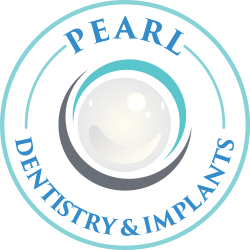dental insurance through their employer, who will choose it depending on what they expect the dental needs of their employees are. However, if you are self-employed, not working, or your employer doesn’t offer dental insurance, you can sign up for dental insurance as an individual. Whether you’re buying dental insurance for yourself or you’re the person at a company who’s in charge of this task, it’s important to understand some basics about how dental insurance works so you can choose the best plan. Some may be surprised to hear this, but dental insurance doesn’t really resemble insurance in the traditional sense (a payment to cover the cost of a loss). Most plans operate more like a cost-savings membership than an insurance plan. While your auto insurance will pay to repair your car if you have an accident, if one of your tooth gets damaged, your dental insurance will not pay for all of it. The cost of repairing the tooth will be split between you and the insurance company, and the portion you pay is determined by the plan you chose. Many dental insurance plans include coverage for some services but not others. For example one plan may cover tooth sealants but not braces, compared to another that covers braces but not sealants. The fact that a dental plan doesn’t cover a certain service doesn’t mean that this treatment isn’t necessary or that you should hesitate to get a treatment that your dentist has recommended. Some dental plans will also offer an alternate lower cost version of a treatment for a given dental program. For example, if you need a crown, your dental insurance may suggest a lower cost amalgam (metal) crown instead of a composite (tooth-colored) crown. This doesn’t mean that the composite option is “extra” or less recommended, it simply means that the insurance company is trying to reduce how much they have to pay. You should always select the treatment that is both recommended by your dentist and fits your goals for the outcome of treatment. For example, if you’d rather have a composite crown that looks like a natural tooth than a metal one that stands out, you should get the composite, even though the insurance company will not help you pay for as much of it. It’s a good idea to try to find a plan that emphasizes preventive care by paying to cover these services at 100%. That means that routine preventive care such as teeth cleanings, exams and x-rays won’t cost you anything out-of-pocket. Preventive care will help save you money in the long run. Problems can be prevented entirely (e.g. removing tartar from teeth to prevent decay) or caught earlier when they’re easier and cheaper to treat (e.g. filling a cavity when it’s still really small). There are three major types of dental insurance plans, and it can be helpful to know the differences.
Your Guide to Understanding How Dental Insurance Works




